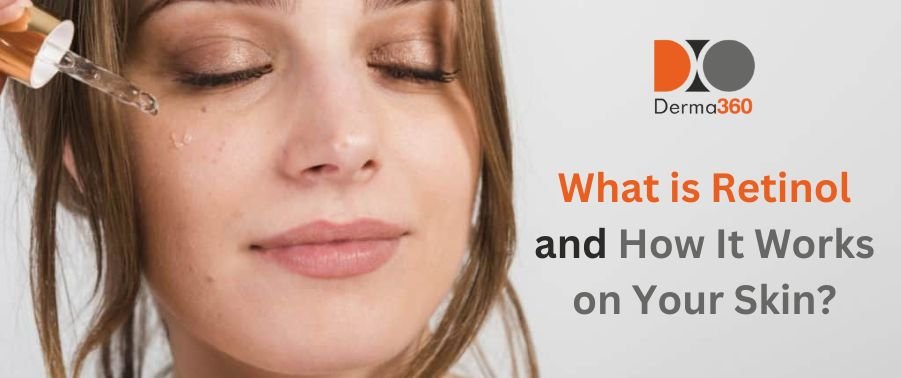Retinol is one of the most popular and effective skincare ingredients available today. Whether you’re looking to fight acne, brighten your skin, or reduce wrinkles, retinol is often the right solution.
What is Retinol?
It is a form of vitamin A, which is a powerful antioxidant that plays an essential role in skin health. It belongs to a group of compounds called retinoids and is used in dermatology for its ability to promote cell turnover and collagen production. It is available in over-the-counter skincare products, but its stronger forms require a prescription. Retinol works at a deeper level in the skin, making it highly effective for various skin issues, including aging, pigmentation, and acne.
How Does Retinol Work?
It works by penetrating deep into the skin and speeding up the natural cell turnover process. Collagen is a protein that keeps the skin firm and youthful. As we age, collagen levels decline, which leads to fine lines and wrinkles. Retinol stimulates collagen production and helps reduce the signs of aging. The skin naturally sheds dead cells, but this process slows down with age. Retinol speeds up cell renewal, revealing fresh and healthy skin underneath. It also helps to clear out pores, reducing breakouts and blackheads, which is why it is a great choice for acne-prone skin. Additionally, it balances oil production, making it beneficial for those with oily or combination skin.
Benefits of Retinol for Different Skin Tones
- Retinol helps smooth wrinkles and fade age spots, making it an important part of anti-aging skincare.
- Retinol reduces acne by preventing clogged pores and controlling oil production, which also helps fade acne marks. This makes it ideal for acne-prone skin.
- Retinol can be drying at first, but it improves skin texture and hydration when used with a good moisturizer.
- Retinol helps to even out skin tone and fade dark spots and sun damage.
How to Use Retinol Safely?
Begin with a low concentration and apply it only two to three times a week. Once your skin adjusts, you can increase usage. Retinol makes the skin more sensitive to sunlight, so it is best to use it in the evening or at night. A little goes a long way, so you should apply a thin layer, avoiding the eye and mouth areas. Retinol causes dryness, so you should always use it with a hydrating moisturizer. Since retinol makes the skin more sensitive to UV rays, it is essential to use SPF during the day to protect your skin.
What to Expect When Using Retinol?
When you start using retinol, your skin needs time to adjust. Some redness, dryness, and peeling are normal as the skin adapts to this treatment. There can be a temporary phase where clogged pores worsen before improvement begins. Results don’t happen overnight, but most people notice changes in 8 to 12 weeks.
Retinol is a powerful skincare ingredient that speeds up cell turnover, fights acne, and evens out skin tone. It may take some time to see results, but it is a must-have for anyone looking to improve their skin. Add it to your skincare routine if you want to enjoy healthier and younger-looking skin.



